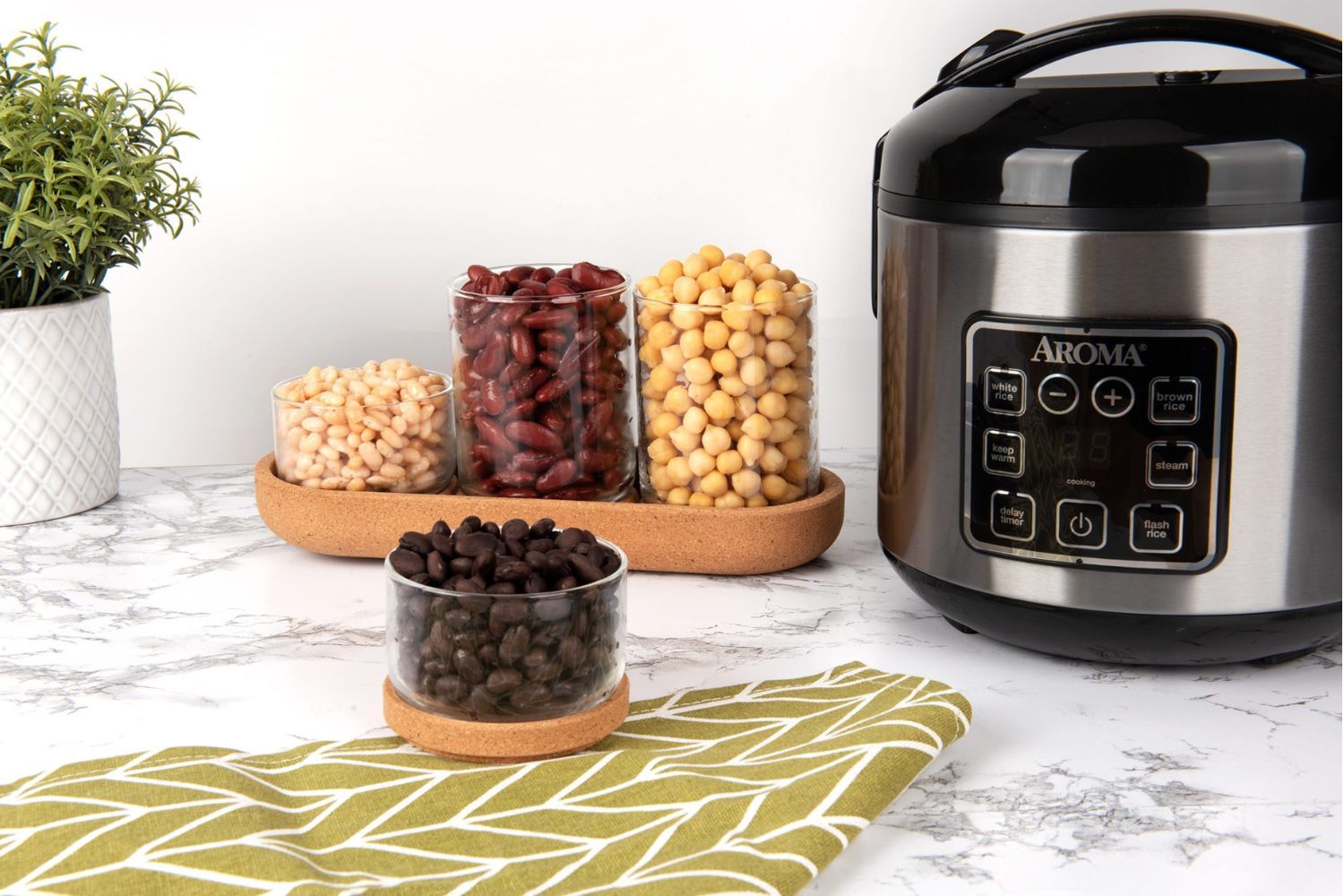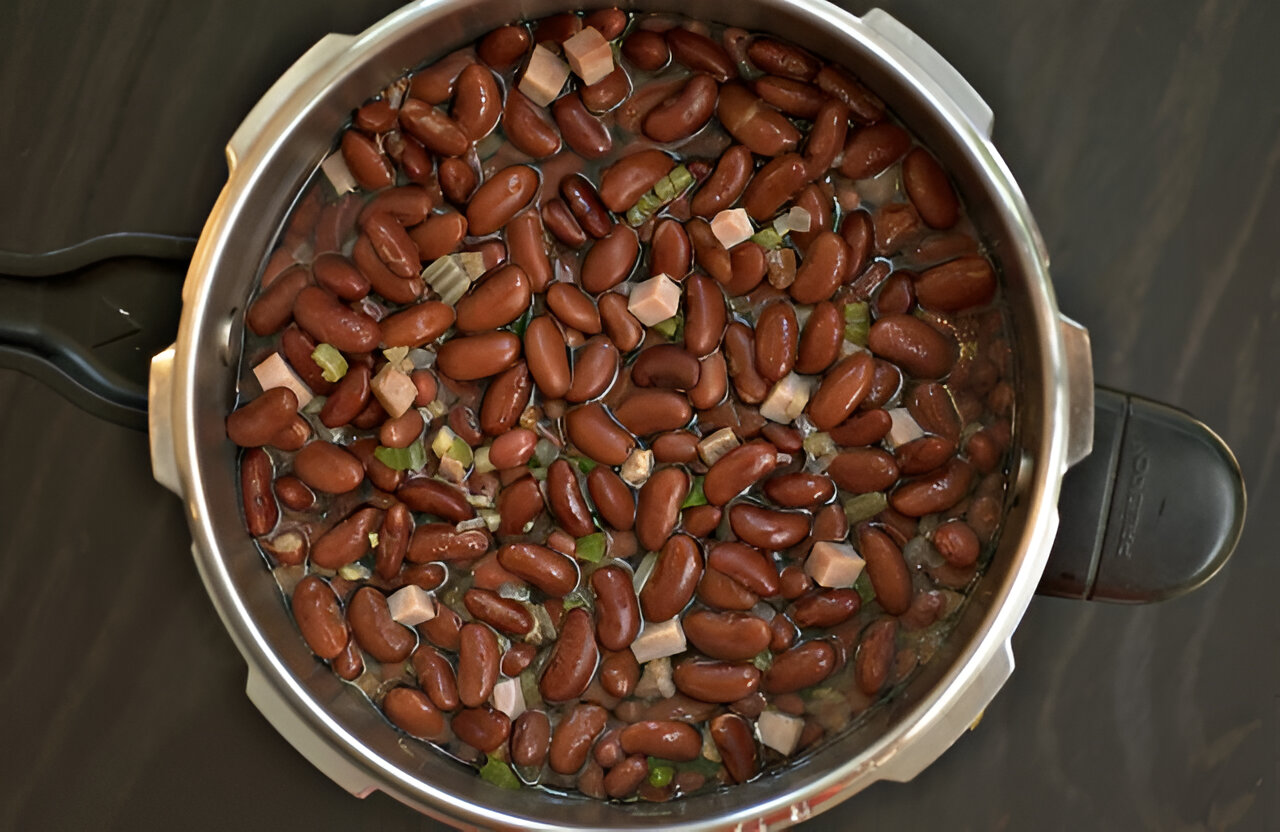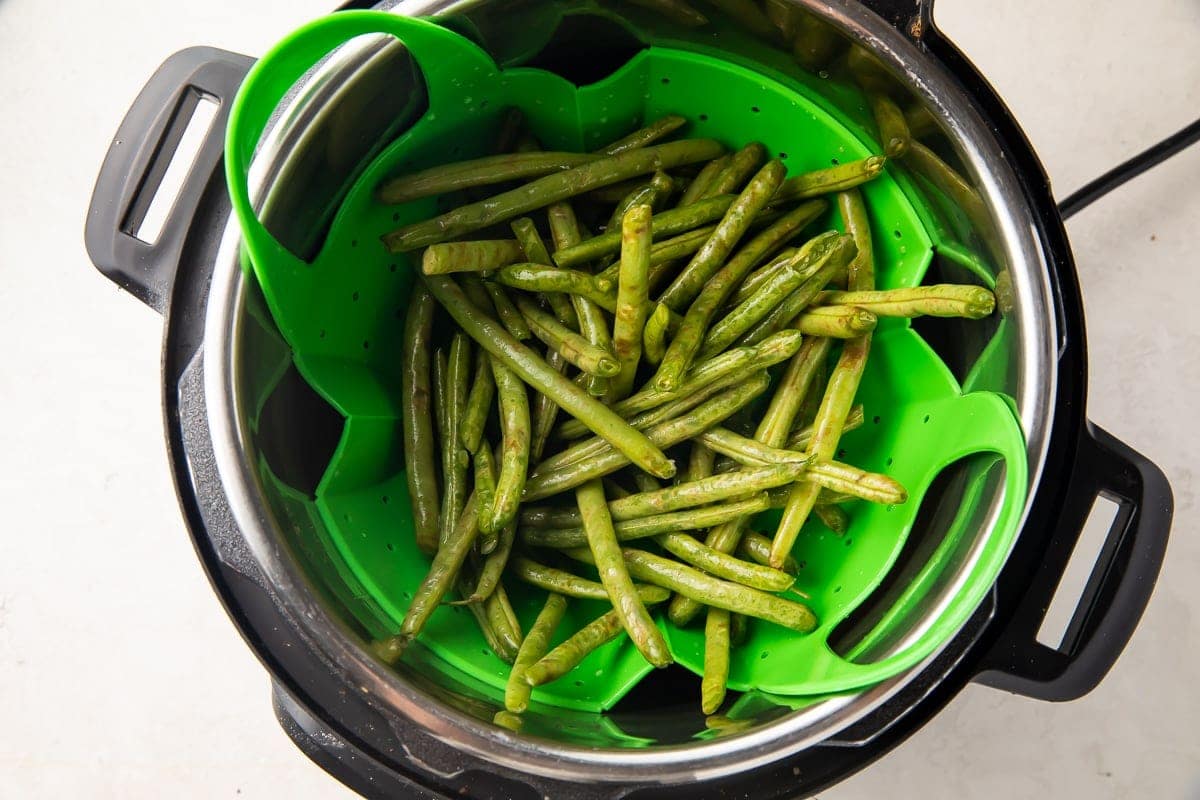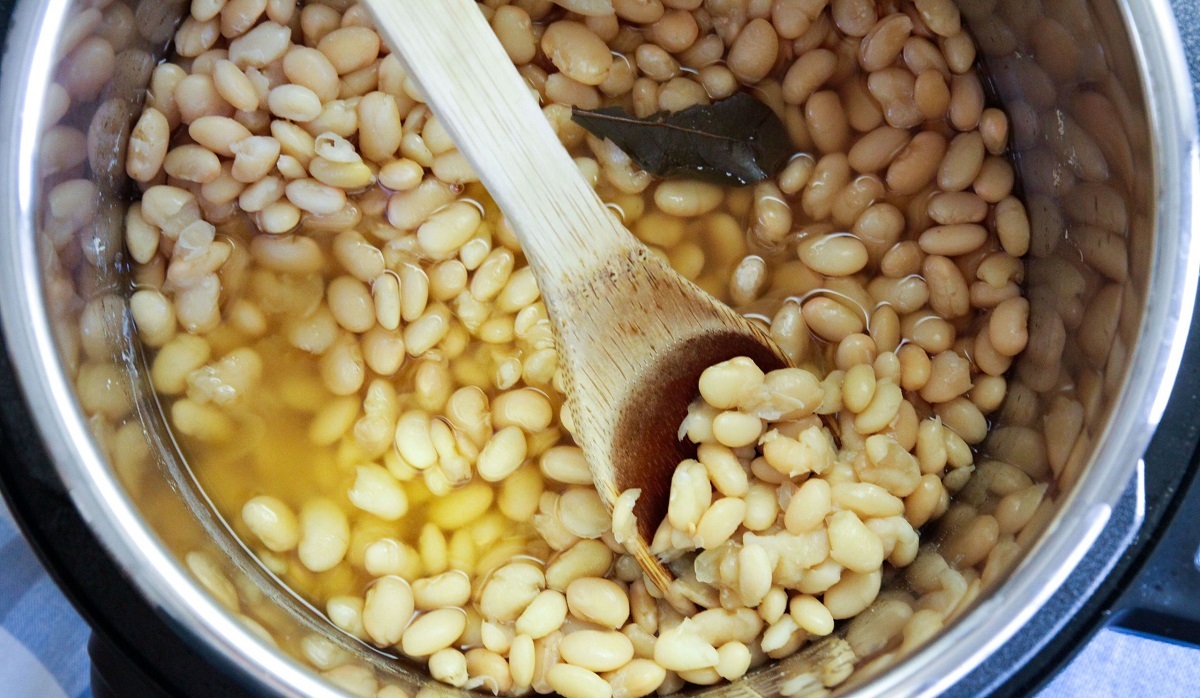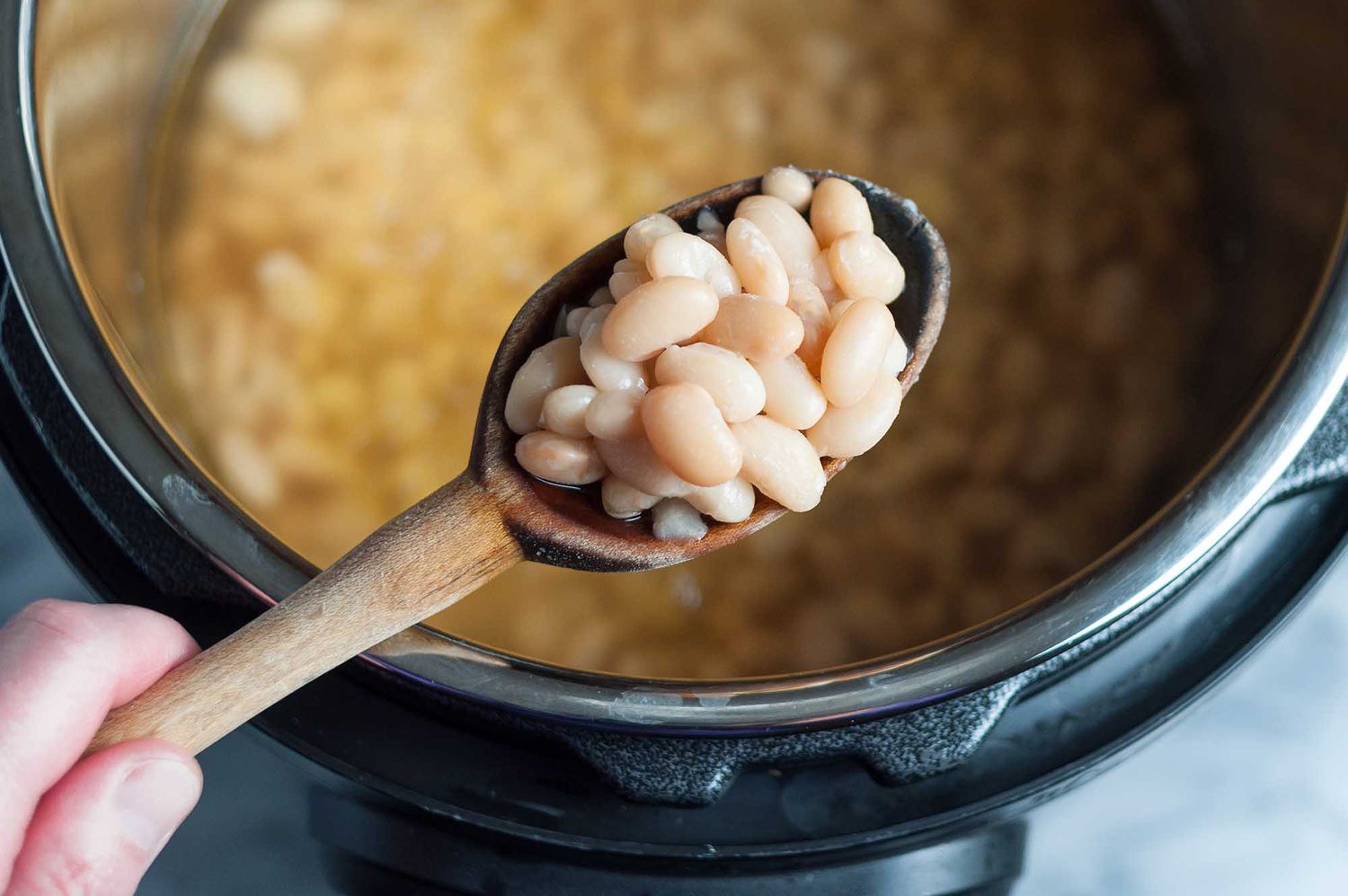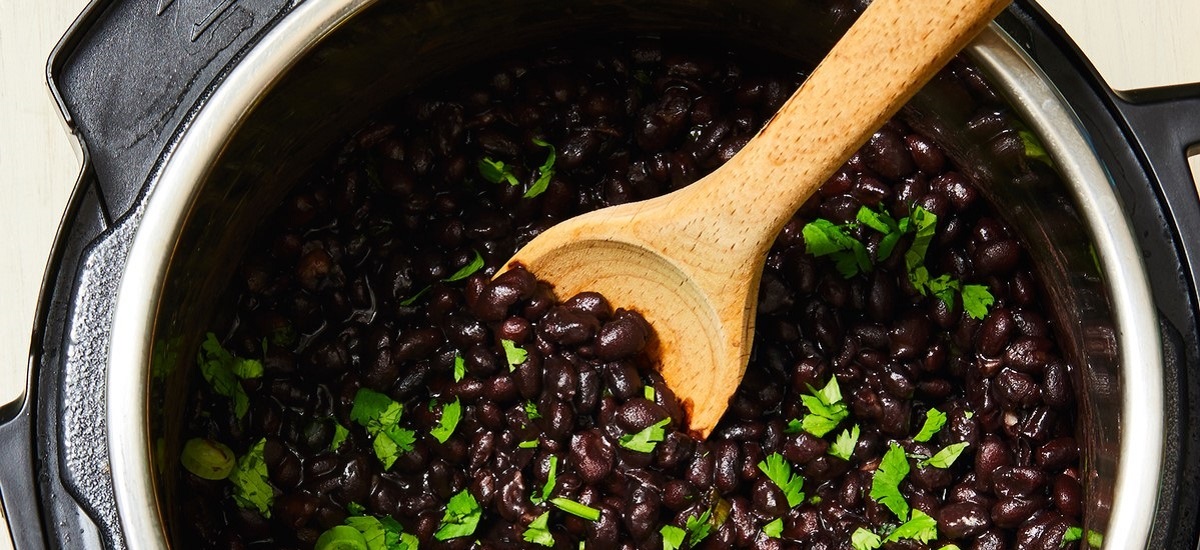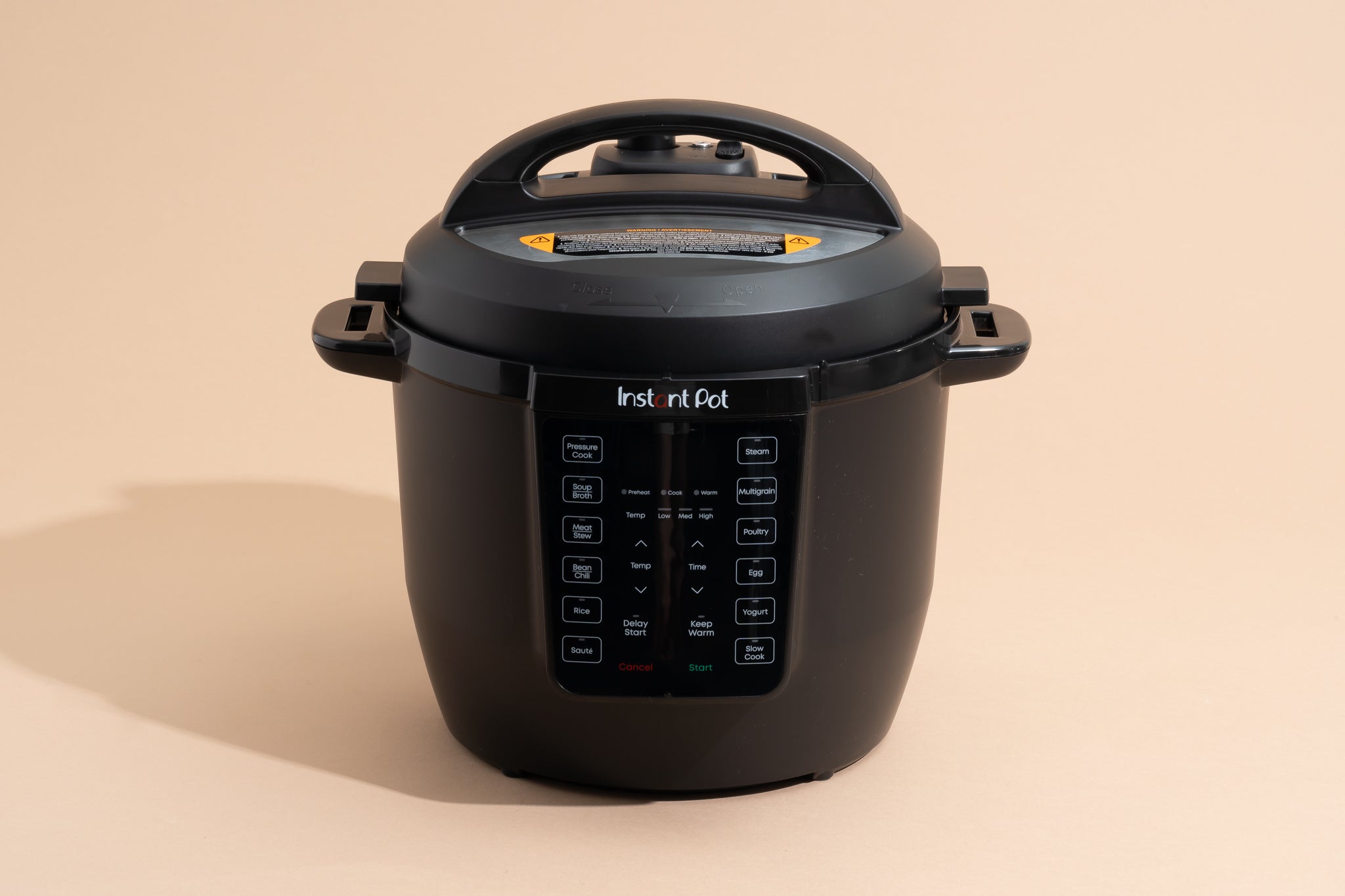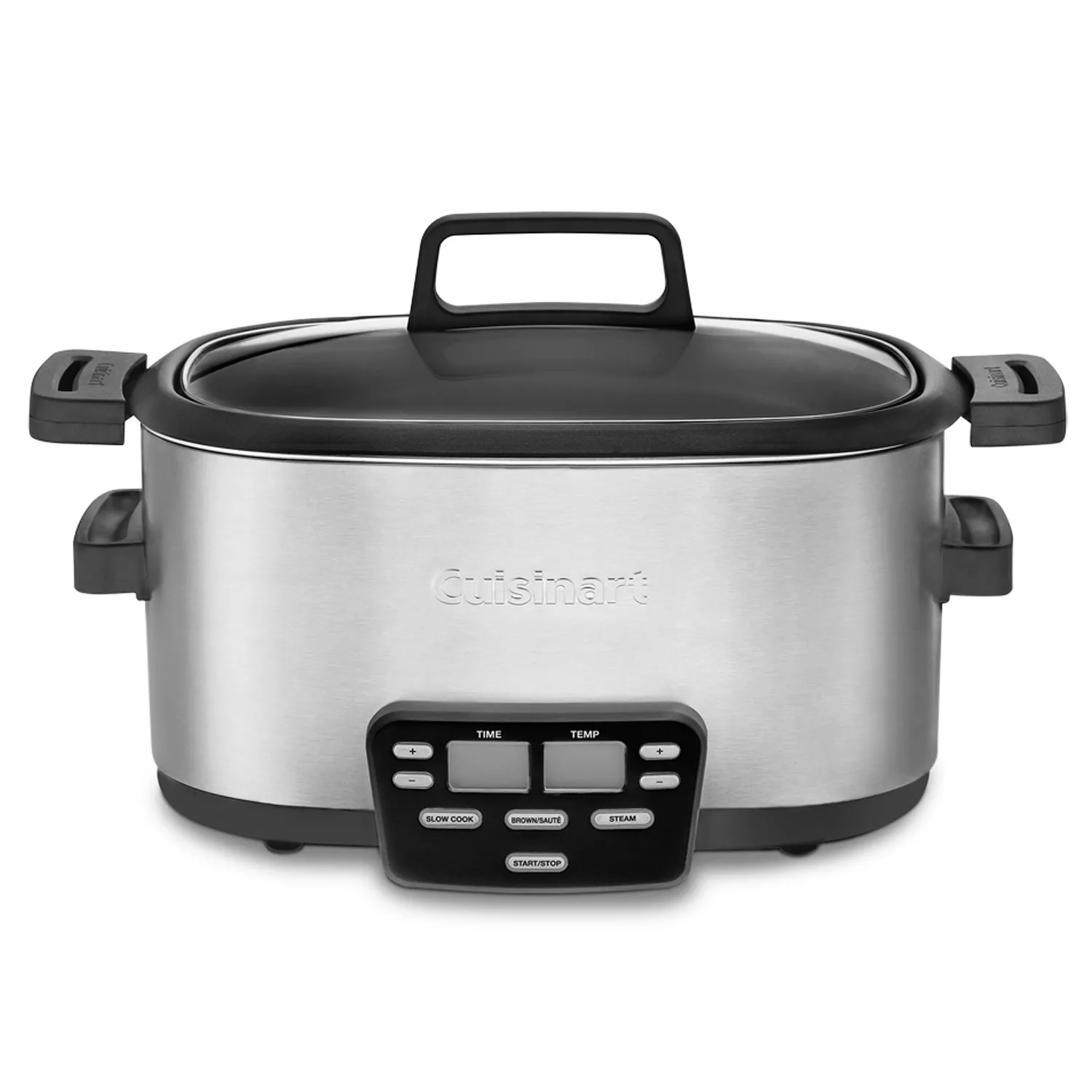Introduction
Black beans are delicious, versatile, and packed with nutrients. Whether you’re using them in soups, salads, or as a side dish, cooking black beans to perfection can be a time-consuming process. However, with the help of an electric pressure cooker, you can significantly reduce the cooking time without compromising on flavor or texture.
In this article, we will explore the benefits of cooking black beans in an electric pressure cooker and provide you with step-by-step instructions on how to achieve perfectly cooked black beans every time. We will also discuss the different cooking methods, the ideal cooking time, and troubleshooting tips to ensure your black beans turn out deliciously tender.
By utilizing the power and efficiency of an electric pressure cooker, you can save valuable time and energy in the kitchen while still enjoying the wonderful taste and health benefits of black beans.
So, get ready to revolutionize your cooking experience as we dive into the world of black beans and electric pressure cookers.
The Benefits of Cooking Black Beans In an Electric Pressure Cooker
Cooking black beans in an electric pressure cooker offers numerous advantages compared to traditional stovetop cooking methods. Let’s explore some of the key benefits:
1. Time Efficiency: One of the biggest advantages of using an electric pressure cooker is the significant reduction in cooking time. While stovetop methods can take hours to cook black beans, an electric pressure cooker can deliver tender and flavorful beans in a fraction of the time. This means you can have a nutritious meal on the table in no time.
2. Retained Nutrients: Unlike boiling or long simmering, which may cause essential nutrients to leach out, cooking black beans in an electric pressure cooker helps preserve their nutritional value. The quick cooking time and sealed environment help retain vitamins, minerals, and antioxidants present in black beans, making them a healthy addition to your diet.
3. Enhanced Flavor and Texture: The high pressure and steam in an electric pressure cooker work together to infuse the beans with flavor and create a tender, creamy texture. This results in black beans that are not only delicious but also have a satisfying mouthfeel. The pressure cooker can transform your black beans into a culinary delight.
4. Energy Efficiency: Electric pressure cookers are designed to be energy-efficient, consuming much less energy than traditional stovetop cooking methods. The shorter cooking time and the ability to retain heat efficiently contribute to reduced energy consumption, making it an eco-friendly cooking option.
5. Versatility: Electric pressure cookers are incredibly versatile, allowing you to cook black beans in various ways. Whether you prefer to cook them from scratch or use soaked beans, the electric pressure cooker can handle it all. You can also customize the seasonings and add other ingredients to create a flavor profile that suits your preferences.
6. User-Friendly: Modern electric pressure cookers are designed with user-friendly features that make the cooking process easy and convenient. From preset cooking programs to safety features like auto-shutoff and pressure release valves, using an electric pressure cooker is a hassle-free experience.
Overall, cooking black beans in an electric pressure cooker saves time, retains nutrients, enhances flavor and texture, promotes energy efficiency, offers versatility, and provides a user-friendly cooking experience. So, it’s no wonder that electric pressure cookers have become a staple appliance in many kitchens.
Preparing Black Beans for Cooking
Properly preparing black beans before cooking is essential to ensure they cook evenly and turn out deliciously tender. Here are the necessary steps for preparing black beans:
1. Sorting and Rinsing: Start by sorting through the black beans to remove any debris or shriveled beans. Rinse the beans thoroughly under cold running water to remove any dirt or impurities.
2. Soaking (Optional): While soaking is not always necessary, it can help reduce cooking time and improve digestibility. If you choose to soak the beans, place them in a large bowl and cover them with water. Allow them to soak overnight or for at least 8 hours. Drain and rinse the soaked beans before cooking.
3. Flavors and Seasonings: Black beans can benefit from additional flavors and seasonings. You can add aromatics like onion, garlic, bay leaves, or spices like cumin, paprika, or oregano. These ingredients can be added directly to the pressure cooker to infuse the beans with delicious flavors.
4. Liquid Ratio: To ensure the beans cook properly, it’s important to add enough liquid. For every cup of black beans, use approximately 3 cups of liquid, such as water, vegetable broth, or a combination of both. The liquid helps create the necessary steam and pressure to cook the beans.
5. Presoaking Alternatives: If you prefer not to soak the beans, you can still cook them directly in the electric pressure cooker. However, keep in mind that this may increase the cooking time. You can also opt for the “quick soak” method by placing the rinsed beans and the appropriate amount of liquid in the pressure cooker, bringing it to high pressure for a few minutes, and then performing a quick pressure release. This can help soften the beans without the need for overnight soaking.
By following these preparation steps, you can ensure that your black beans are clean, flavorful, and ready to be cooked to perfection in the electric pressure cooker.
Cooking Black Beans in an Electric Pressure Cooker
Now that your black beans are prepared and ready, it’s time to bring out the electric pressure cooker and start the cooking process. Follow these step-by-step instructions to cook black beans in an electric pressure cooker:
1. Add Ingredients: Place the prepared black beans in the electric pressure cooker along with any desired flavorings, seasonings, and the appropriate amount of liquid. Ensure that the liquid covers the beans by at least an inch.
2. Close and Seal: Securely close the lid of the pressure cooker and ensure it is properly sealed. This is crucial for building pressure and cooking the beans effectively.
3. Set Cooking Time: Select the appropriate cooking time based on the type and condition of your black beans. Generally, unsoaked beans may require around 25-30 minutes, while soaked beans can cook in approximately 8-10 minutes.
4. Choose Cooking Mode: Some electric pressure cookers have different cooking modes such as manual, beans, or pressure cook. Select the appropriate mode for cooking black beans based on your specific model.
5. Start Cooking: Start the cooking process by pressing the corresponding button or setting on your electric pressure cooker. The cooker will reach the desired pressure and cooking will begin.
6. Natural Release vs. Quick Release: After the cooking time is complete, you have two options for releasing the pressure. For a natural release, allow the pressure to release naturally, which can take around 10-15 minutes. For a quick release, carefully move the pressure release valve to the venting position to release the pressure within a few minutes.
7. Test for Doneness: Once the pressure has been released, open the lid and test the beans for doneness. They should be soft and tender but not mushy. If they are slightly undercooked, you can return them to pressure for an additional few minutes.
8. Season and Serve: At this point, you can season the cooked black beans with salt, pepper, or additional spices according to your taste. Use the cooked black beans in your favorite recipes or enjoy them as a nutritious side dish.
By following these steps, you can achieve perfectly cooked black beans in your electric pressure cooker, saving time and effort compared to traditional cooking methods.
Natural Release vs. Quick Release
When cooking black beans in an electric pressure cooker, you have the option to perform either a natural release or a quick release to release the pressure. Understanding the differences between the two methods is important for achieving the desired texture and flavor of your cooked black beans.
Natural Release: Natural release involves allowing the pressure to release on its own without any intervention. After the cooking time is complete, simply leave the electric pressure cooker untouched and let the pressure decrease naturally. This process typically takes around 10-15 minutes, although it may vary depending on the size and temperature of the cooker.
Natural release is beneficial when cooking black beans because it allows the beans to continue cooking gently in residual heat. This gradual release of pressure helps to prevent the beans from becoming mushy or overcooked. It also allows flavors to develop and meld together while the beans rest in the hot liquid.
Quick Release: Quick release, on the other hand, involves manually releasing the pressure using the pressure release valve. This method rapidly releases the steam and pressure from the electric pressure cooker, usually within a few minutes. Be cautious when performing a quick release, as the steam released can be hot and may cause spewing or splattering.
Quick release is suitable for when you want to stop the cooking process immediately and ensure that the beans retain a firmer texture. It is helpful if you are short on time or need to quickly cool down the beans to use them in a recipe.
It is important to note that the cooking time should not be confused with the time required for the pressure to release. Always consider the time needed for both cooking and pressure release when planning your meal.
Both natural release and quick release methods have their advantages depending on the desired outcome. Natural release is recommended for beans that require more time to cook or for dishes where tenderness is preferred. Quick release is suitable for recipes that call for firmer beans or when you need to save time.
By understanding the differences between natural release and quick release and choosing the appropriate method, you can control the texture and flavor of your cooked black beans, ensuring they turn out perfectly every time.
Testing for Doneness
Testing black beans for doneness is crucial to ensure they are cooked to the desired tenderness. Here are a few methods you can use to determine if your black beans are properly cooked:
1. Visual Examination: Take a close look at the black beans. They should be soft and tender but still hold their shape. Overcooked beans may become mushy and lose their texture, while undercooked beans will be firm and not as enjoyable to eat.
2. Texture Test: Take a bean and gently press it between your fingers or bite into it. The bean should offer slight resistance before giving way to a creamy and tender interior. If the bean is still hard or gritty in the center, it needs more cooking time.
3. Taste Test: Taste a few beans to ensure they are cooked to your preference. Well-cooked black beans should be soft and have a pleasant, creamy texture. They should not have a raw or starchy taste but instead be flavorful and tender.
4. Mash Test: Using the back of a spoon or a fork, try mashing a few black beans against the side of the cooking pot. If they easily mash into a creamy consistency, they are likely properly cooked. If they resist mashing or retain a grainy texture, they need more cooking time.
Remember that the cooking time for black beans can vary depending on factors such as the type of beans, their age, and whether or not they were soaked. It’s always better to slightly undercook the beans and make adjustments if needed rather than overcooking them.
If you find that your black beans are undercooked after performing the doneness tests, simply return them to the electric pressure cooker and cook them for a few more minutes until they reach the desired level of tenderness.
By using these methods to test the doneness of your black beans, you can ensure that they are perfectly cooked, flavorful, and ready to be enjoyed in your favorite recipes or as a nutritious side dish.
How Long Does It Take to Cook Black Beans in an Electric Pressure Cooker?
The cooking time for black beans in an electric pressure cooker can vary depending on factors such as the type and condition of the beans, whether or not they were soaked, and personal preference for tenderness. However, as a general guideline, here are the estimated cooking times for black beans in an electric pressure cooker:
Unsoaked Black Beans: If you are cooking unsoaked black beans in an electric pressure cooker, they typically require around 25-30 minutes of cooking time. This timeframe allows the beans to soften and become tender while still holding their shape.
Soaked Black Beans: If you opt to soak your black beans before cooking, the cooking time will be significantly reduced. Soaked black beans usually only need around 8-10 minutes of cooking time in the electric pressure cooker to reach the desired tenderness.
Keep in mind that cooking times may vary based on the specific make and model of your electric pressure cooker. It’s always a good idea to consult the manufacturer’s instructions or recipe guidelines for more precise cooking times.
When determining the cooking time for your black beans, it’s important to consider your personal preference for the texture of the beans. If you prefer firmer beans, you can reduce the cooking time slightly. On the other hand, if you prefer softer, mushier beans, you can increase the cooking time accordingly.
It’s also worth noting that the cooking time does not include the additional time needed for the pressure cooker to reach the desired pressure before the actual cooking process begins. This time can range from a few minutes to around 15 minutes, depending on the cooker and the amount of liquid used.
Ultimately, the best way to determine if your black beans are cooked to perfection is by testing their doneness using visual examination, texture tests, and taste tests as mentioned in the previous section. Adjust the cooking time as needed to achieve the desired tenderness.
By following the general guidelines for cooking times and making adjustments based on your preference and the specific characteristics of your electric pressure cooker, you can ensure that your black beans are perfectly cooked and ready to be enjoyed in a variety of delicious dishes.
Troubleshooting Tips
While cooking black beans in an electric pressure cooker is generally a straightforward process, you may encounter a few common issues along the way. Here are some troubleshooting tips to help you overcome potential challenges:
1. Undercooked Beans: If you find that your black beans are undercooked after the recommended cooking time, simply return them to the electric pressure cooker and cook them for a few more minutes until they reach the desired tenderness.
2. Overcooked Beans: If your black beans turn out mushy or overcooked, it’s possible that they were cooked for too long. To avoid this, reduce the cooking time slightly or use the natural release method instead of the quick release to prevent overcooking.
3. Adjusting Liquid Levels: If you find that your black beans turn out too dry or too soupy, you can adjust the liquid levels for future cooking. Add a little more liquid if the beans are too dry, or reduce the amount of liquid if they are too soupy. Remember to maintain the recommended ratio of liquid to beans.
4. Soaking Time: If you choose to soak your black beans before cooking and find that they are still not cooked to your desired tenderness, you can increase the soaking time. Extend the soaking time to 12-24 hours to further soften the beans and reduce the cooking time in the pressure cooker.
5. Uneven Texture: If you notice that some of the black beans are cooked perfectly while others are still firm, it could be due to inconsistent size or quality of the beans. To solve this issue, sort through the beans before cooking and remove any undercooked or overcooked beans. This ensures a more uniform cooking process.
6. Soaking Alternatives: If you prefer not to soak your black beans before cooking, you can opt for the “quick soak” method. Place the rinsed beans and the appropriate amount of liquid in the pressure cooker, bring it to high pressure for a few minutes, and then perform a quick pressure release. This can help soften the beans without the need for overnight soaking.
By applying these troubleshooting tips, you can overcome any issues that may arise during the cooking process and achieve perfectly cooked black beans in your electric pressure cooker.
Conclusion
Cooking black beans in an electric pressure cooker is a game-changer when it comes to efficiency, time savings, and achieving perfectly cooked beans. The benefits of using an electric pressure cooker are numerous, including reduced cooking time, retained nutrients, enhanced flavor and texture, energy efficiency, versatility, and user-friendly operation.
By properly preparing the black beans before cooking and following the step-by-step instructions, you can experience the convenience and delicious results of cooking black beans in an electric pressure cooker. Remember to sort and rinse the beans, soak them if desired, add flavorful ingredients, and adjust liquid levels accordingly.
During the cooking process, you have the option to choose between natural release or quick release to release the pressure. It’s important to test the beans for doneness using visual examination, texture tests, and taste tests to ensure they are cooked to your preference.
If you encounter any issues, such as undercooked or overcooked beans, uneven texture, or dryness, you can apply troubleshooting tips to adjust the cooking process and improve the results.
With the help of an electric pressure cooker, you can enjoy delicious, tender black beans in a fraction of the time compared to traditional cooking methods. Experiment with different flavors, seasonings, and recipes to explore the versatility of black beans and incorporate them into your favorite dishes.
So, embrace the convenience and benefits of an electric pressure cooker as you elevate your cooking experience and savor the wonders of perfectly cooked black beans. Your taste buds and your time-saving efforts will thank you!







